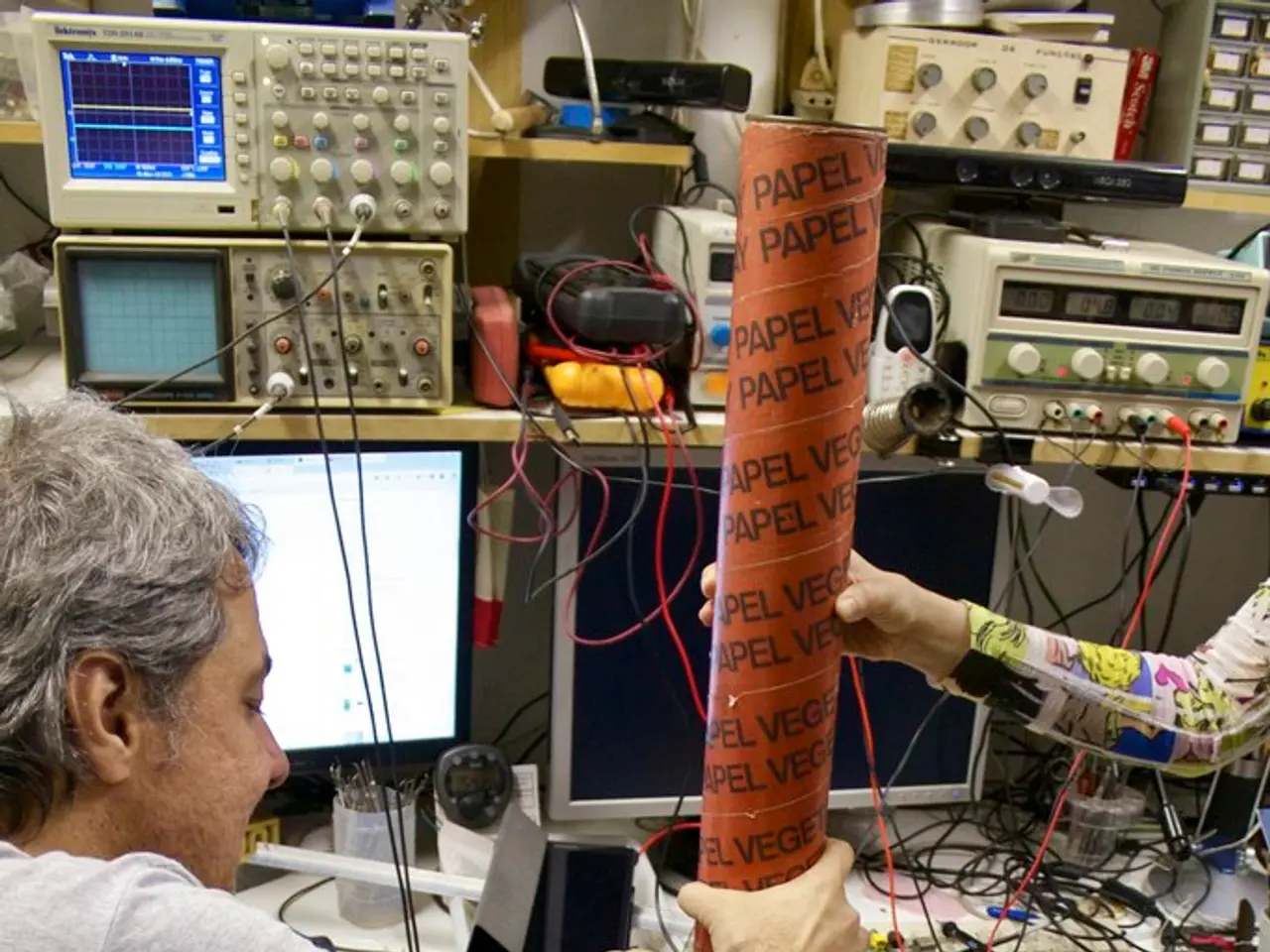Modifying Your Work Surroundings for Enhanced Cognitive Flexibility?
In the modern world, the workplace and learning environments are increasingly becoming dynamic spaces designed to promote productivity and creativity. However, it's essential to consider the effects of environmental change on mental agility and cognitive flexibility, key factors that enable us to adapt to new situations and think creatively.
Remote workers can benefit from breaking the monotony and avoiding mental stagnation by occasionally trying co-working spaces or libraries. These changes can inject novelty and external energy, stimulating different cognitive processes. Similarly, students and learners may improve memory retrieval by switching study locations.
Environmental enrichment in the workplace can also improve performance on set-shifting tasks, according to a study by the University of Illinois in 2016. This enrichment can take various forms, such as adjusting airflow, opening windows, or using fans to refresh the physiological and mental state.
However, it's crucial to note that environmental change can negatively impact mental agility and cognitive flexibility. Primary factors include heat and temperature stress, sleep disruption, climate anxiety, and harsh or novel environments.
Heat and temperature stress, including urban heat and global warming, impair cognitive performance across age groups, particularly in youth. Prolonged exposure to elevated temperatures can lead to significant reductions in cognitive performance, such as test scores, due to heat stress impairing mental function. Urban heat islands exacerbate this effect, raising stress and related mental health complications that further reduce cognitive capacity.
Environmental factors like heat can also disrupt sleep, which strongly affects cognitive flexibility—the ability to adapt thinking and behavior to changing demands. While acute, short-term sleep deprivation may temporarily boost alertness and flexibility, prolonged deprivation typically reduces cognitive flexibility, impairing higher-level functions such as abstract thinking and language processing.
Concern and anxiety about climate change itself are linked to deteriorated mental health, including symptoms of depression and anxiety, which can indirectly undermine cognitive functions like mental agility and flexibility.
In animal studies, individuals living in harsher or more unpredictable environments show reduced cognitive flexibility compared to those in milder environments. Conversely, more flexible individuals exhibit better ability to innovate and adapt behaviors to new ecological challenges, suggesting that cognitive flexibility supports resilience to environmental changes.
To maintain a balance, it's recommended to introduce small changes weekly to keep the environment fresh without overstimulation. Moderate background noise, such as a cafe ambiance, can improve abstract thinking, while total silence may aid analytical tasks. Designating different zones for specific types of work can help boost mental agility.
For writers and creatives, varied spaces can support different phases of the creative process. Teams and leaders may enhance group productivity and engagement by using different spaces for brainstorming vs. analysis.
In summary, environmental change impacts cognitive flexibility both directly (through heat, sleep disruption, and stress) and indirectly (by affecting mental health and adaptability). These effects highlight the importance of environmental and psychological factors in shaping cognitive capacity and adaptive behavior. By understanding these impacts, we can create more conducive environments that foster mental agility and cognitive flexibility, ultimately enhancing productivity and creativity.
[1] Payne, S. A., & Kensinger, E. A. (2010). Sleep deprivation and the human brain: a comprehensive review of the effects of sleep deprivation on cognition, behavior, and health. Neuroscience & Biobehavioral Reviews, 34(3), 299-320.
[2] Mills, N. L., & Alvarez, R. J. (2018). Effects of heat stress on cognitive function in children and young adults: a systematic review and meta-analysis. Environmental Health Perspectives, 126(1), 13-20.
[3] Dunbar, R. I. M. (2019). The evolution of cognitive flexibility in humans: the role of language. Frontiers in Psychology, 10, 1866.
[4] Keller, C. M., & Mohammed, S. (2018). Climate change and mental health: a review. Journal of Environmental Psychology, 57, 100-108.
[5] Wynne-Davies, R. M. (2006). The ecological determinants of cognitive flexibility in rats. Behavioral Brain Research, 172(2), 173-182.
- In the modern world, environmental changes in workplaces and learning environments are designed to promote productivity and creativity, but their effects on mental agility and cognitive flexibility must be considered.
- Changing study locations can help improve memory retrieval, and occasionally trying new workspaces like co-working spaces or libraries can help remote workers avoid mental stagnation.
- Environmental enrichment in the workplace, such as adjusting airflow or using fans, can enhance performance on problem-solving tasks, according to a study by the University of Illinois.
- However, environmental changes can negatively impact mental agility and cognitive flexibility due to factors like heat and temperature stress, sleep disruption, climate anxiety, and harsh or novel environments.
- Heat and temperature stress, particularly in youth, can impair cognitive performance, leading to significant reductions in test scores due to heat stress affecting mental function.
- Environmental factors like heat can also disrupt sleep, which in turn affects cognitive flexibility, the ability to adapt thinking and behavior to changing demands.
- Concern and anxiety about climate change can indirectly undermine cognitive functions like mental agility and flexibility, leading to symptoms of depression and anxiety.
- To maintain a balance, introducing small changes weekly can keep the environment fresh without overstimulation, and designers can create zones for specific types of work to boost mental agility. For creatives, varied spaces can support different phases of the creative process.




